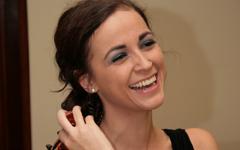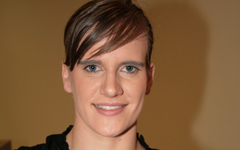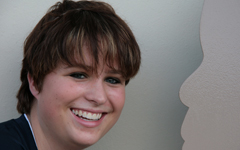
Carmi Nel |

Elsabe Raath |

Maja van Dyk |
25 January 2013
Three students from the University of the Free State’s Odeion School of Music (OSM) have proved their mettle. Carmi Viljoen (violin), Elsabé Raath (viola) and Maja van Dyk (viola), have been accepted into the prestigious World Youth Orchestra – an orchestra known worldwide for its quality and the prix de corps itadvances between nations.
Musica Europa, an Italian cultural association, founded the World Youth Orchestra (WYO) in its present guise in 2001. It has close ties with UNICEF and its mission is to combine music with social activities from cultures all over to world in order to enrich the cultural life of all.
Rigorous auditions are held which require applicants to upload video recordings onto a website (Vimeo). An international board of adjudicators subsequently listens to these recordings and select the best.The three OSM students were good enough to make the grade.
These three musicians are also members of the Free State Symphony Orchestra, as well as the MIAGI orchestra that toured Europe successfully last year. They are also outstanding chamber musicians. Carmi and Elsabé, as members of the Junior Odeion String Quartet, have shown that they are on par with international standards and have toured The Netherlands. In 2012, Maja van Dyk had been selected to perform as soloist with the National Youth String Orchestra under the baton of Swedish conductor and violinist, Fredrik Burstedt.
They first heard of the possibility of playing for the WYO through Anmari van der Westhuizen, lecturer at the OSM. Margarite Spies from the KZN Philharmonic Orchestra (KZNPO) had contacted her in search of worthy candidates. A scant three weeks later, they received the good news of their inclusion.
The orchestra, with representatives from five continents, will be touring South Africa this year and no less than nine South Africans have been included. The tour kicks off in Durban, followed by performances in East London, Plettenberg Bay, George, Knysna, Stellenbosch, with a grand finale in the Cape Town City Hall.
Works that will be performed include ‘’Romeo and Juliet’’ by Prokofiev, the irrepressible “Carnival Overture” by Dvorák, Barber’s ‘’Adagio for Strings’’ and part of Mahler’s majestic Fifth Symphony, all under the baton of the dynamic Josep Vicent.